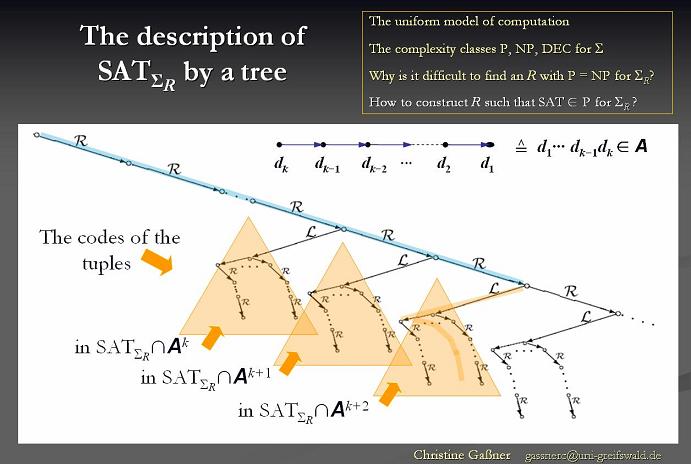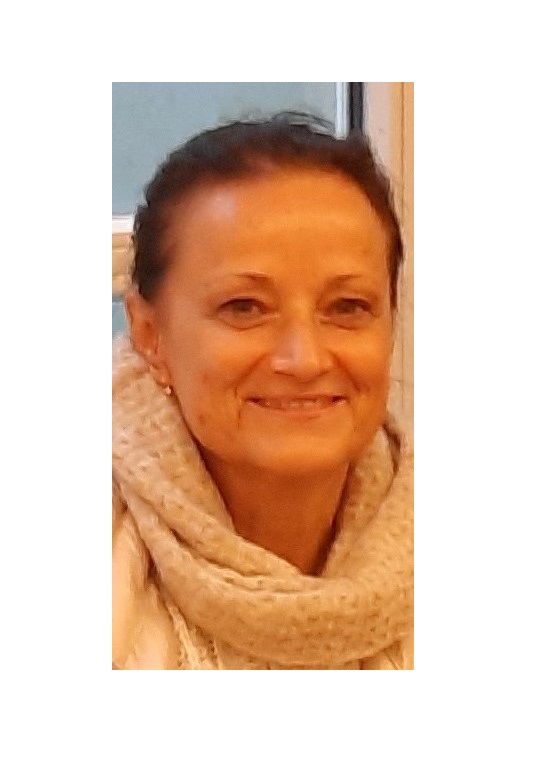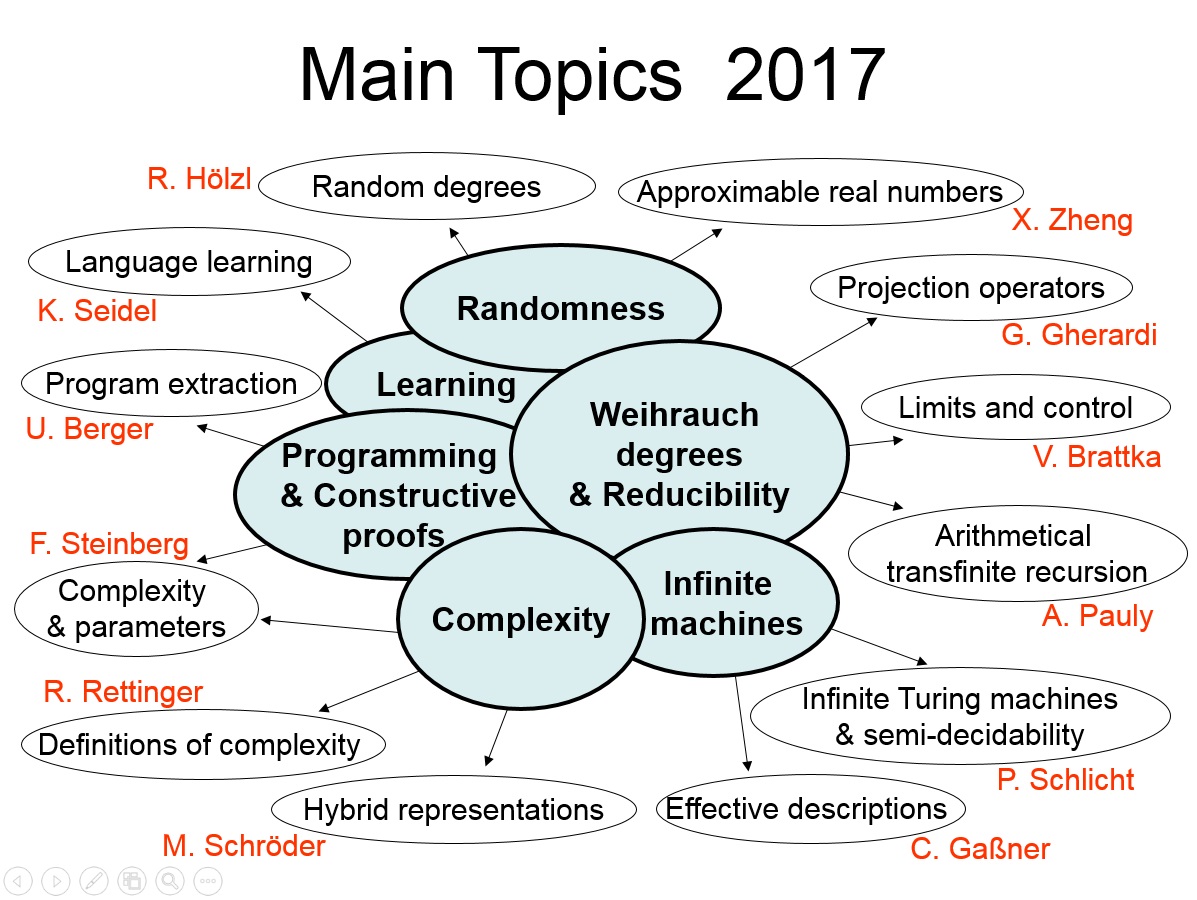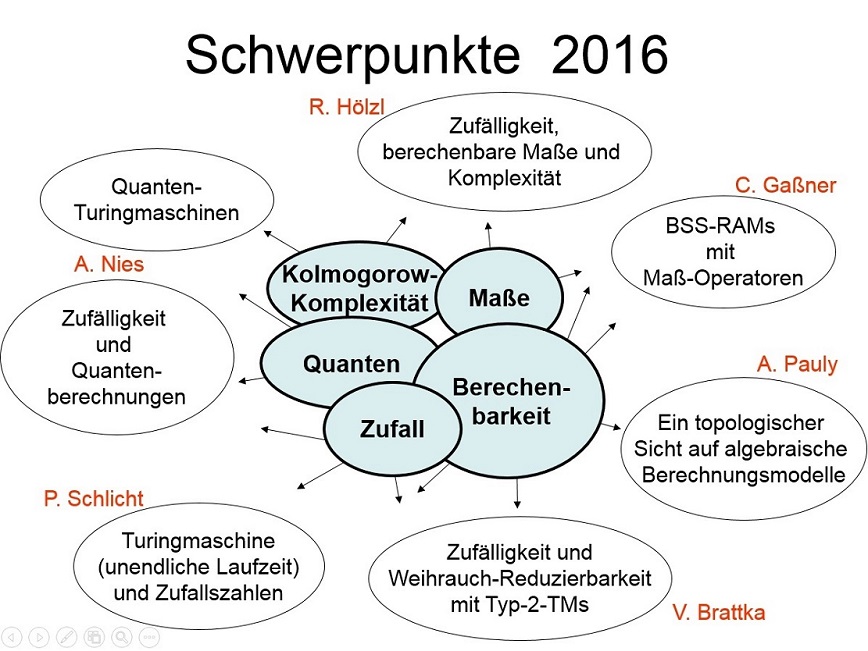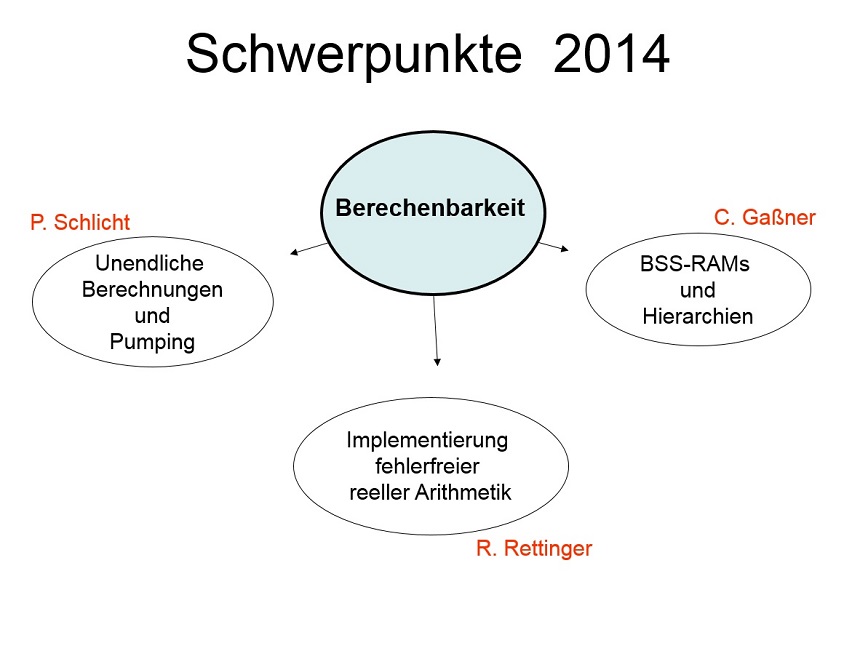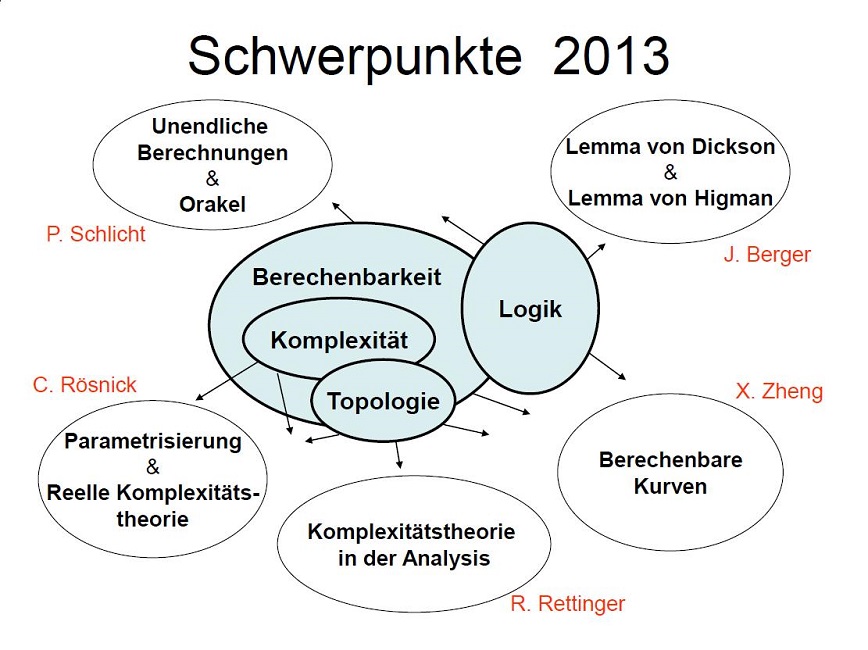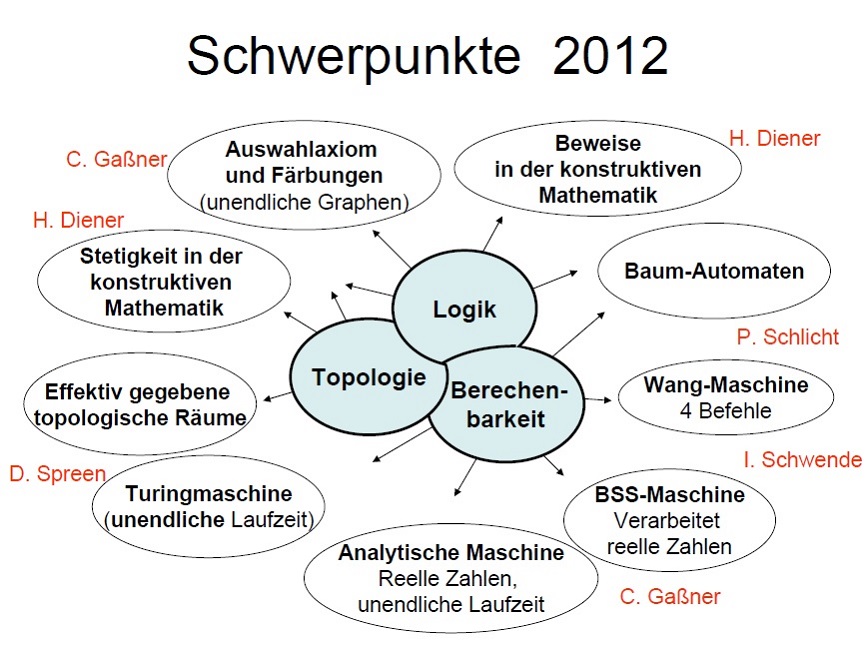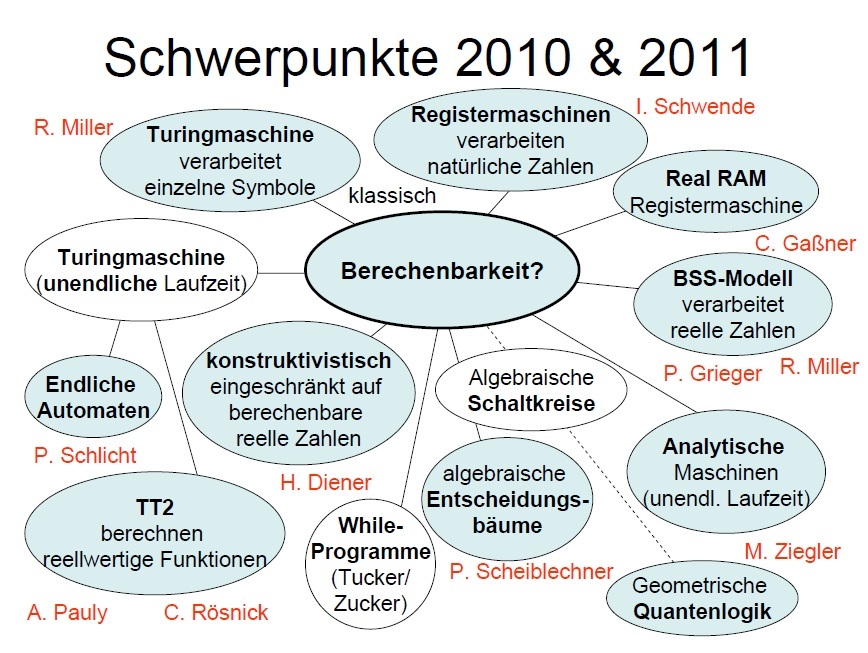PD Dr. Christine Gaßner
Kontakt
Institut für Mathematik und Informatik
Walther-Rathenau-Str. 47
17489 Greifswald
Telefon +49 3834 420 4610
Sprechzeiten: Nach Vereinbarung.
Lehre
Theoretische Informatik (letztmalig: SoSe 2023)
Berechenbarkeitstheorie über algebraischen Strukturen (letztmalig: SoSe 2023)
Berechenbarkeitstheorie (letztmalig: SoSe 2023)
Algorithmik und Komplexitätstheorie (letztmalig: WiSe 2022/2023)
Mathematische Logik (letztmalig: WiSe 2021/2022)
Maß- und Integrationstheorie (letztmalig: WiSe 2015/2016)
Graphentheorie (letztmalig: WiSe 2015/2016)
Praxis des Programmierens (letztmalig: WiSe 2012/2013)
Künstliche Intelligenz (Seminar, WiSe 2023/2024)
Berechenbarkeitstheorie (letztmalig: WiSe 2022/2023)
Mengenlehre und Prädikatenlogik (letztmalig: WiSe 2022/2023)
NP-vollständige Probleme (letztmalig: SoSe 2022)
Mengenlehre (letztmalig: WiSe 2021/2022)
Das Auswahlaxiom (letztmalig: WiSe 2019/2020)
Berechenbare Analysis (letztmalig: WiSe 2018/2019)
Fundamente der Mathematik (letztmalig: SoSe 2018)
Grenzen der Mathematik (letztmalig: SoSe 2018)
NP-vollständige Probleme der Graphentheorie (letztmalig: WiSe 2017/2018)
DNA Computing (letztmalig: WiSe 2015/2016)
Ausgewählte Themen mit Bezug zur Prädikatenlogik (letztmalig: WiSe 2014/2015)
Quellen: U. Schöning: Theoretische Informatik - kurz gefasst. N. Blum: Theoretische Informatik: eine anwenderorientierte Einführung. Duden Informatik. D. Hoffmann: Theoretische Informatik. C.H. Papadimitriou: Computational complexity. K.R. Reischuk: Komplexitätstheorie - Band I: Grundlagen: Maschinenmodelle, Zeit- und Platzkomplexität, Nichtdeterminismus.
Grundbegriffe
Kodierungen
Der Begriff Algorithmus
Gödelisierungen
Grammatik und Sprachen
Erzeugung von Sprachen (Beispiele)
Erweiterte Transformationsrelation
Weitere Beispiele und Syntaxbäume
Die Chomsky-Hierarchie
Erkennbarkeit und Entscheidbarkeit (Vorbereitung)
Erkennbarkeit und Entscheidbarkeit (Der Satz 2.1)
Erkennbarkeit und Entscheidbarkeit (Die Satz 2.2 und Satz 2.3)
Erkennbarkeit und Entscheidbarkeit (Zum Beweis von Satz 2.3, Veranschaulichung)
Korrektur 3:17 ... jede Kette, die durch Pfeile veranschaulicht ...
Erkennbarkeit und Entscheidbarkeit (Der formale Beweis von Satz 2.3)
Endliche Automaten (Definition und Beispiele)
Endliche Automaten und Typ-3-Sprachen
Reguläre Ausdrücke (Teil 1)
Reguläre Ausdrücke (Teil 2)
Pumping Lemmata (Typ 2 und Typ 3)
Hinweis: Präzisierung (etwa ab 18:05 min):
1) Ein Binärbaum der Tiefe k hat höchstens 2^k Blätter.
2) Ein vollständiger Binärbaum der Tiefe k (d.h. ein Baum,
in dem alle Wege von der Wurzel zu den Blättern die Tiefe k haben)
hat genau 2k Blätter.
Nichtdeterministische Kellerautomaten (Teil 1)
Nichtdeterministische Kellerautomaten (Teil 2)
Hinweis: Die Folien 165 und 166 wurden nachträglich korrigiert: H3 wurde neu eingefügt.
Turingmaschine
Das Halteproblem
Deterministische Kellerautomaten und die Chomsky-Hierarchie
Die Mehrband-Turingmaschine
LOOP-Programme
WHILE-Programme
Die Ackermannfunktion
GOTO-Programme
Partiell rekursive Funktionen
Komplexität und das Erfüllbarkeitsproblem
Meine aktuellen Forschungsprojekte
Abstract computation over first-order structures. Part IIb: Moschovakis' operator and other non-determinisms (Preprint)
AC and the Independence of the Law of Trichotomy in Second-Order Henkin Logic (Preprint)
AC and the Independence of WO in Second-Order Henkin Logic (Part I, Part II)
A BSS-RAM Model for Abstract Computation (Siehe auch Vorträge: (1), (2))
Eine Idee zur Konstruktion von Strukturen mit P = NP
